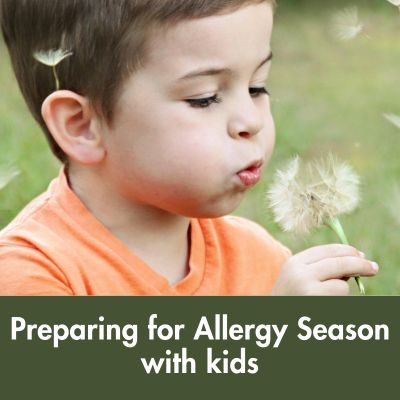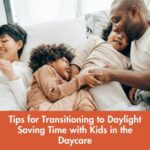Preparing for Allergy Season with Kids

As the seasons change in Ontario, so does the prevalence of allergies. Allergy season can bring discomfort and symptoms such as itchy eyes, sneezing, and congestion, especially for children. However, with proper preparation and management strategies, you can help your child navigate allergy season more comfortably. In this blog post, we will explore effective ways to prepare for allergy season with kids.
Understanding Allergies in Children
To effectively cope with allergy season, it is important to understand the nature of allergies in children. Allergies occur when the immune system reacts to harmless substances in the environment, such as pollen, dust mites, or pet dander. In Ontario, common allergens include tree pollen in the spring, grass pollen in the summer, and ragweed pollen in the fall. By recognizing the specific allergens affecting your child, you can better prepare for allergy season.
Identifying Allergy Triggers
The first step in preparation is to identify the specific triggers that cause your child’s allergies to flare up. Allergy testing, conducted by a healthcare professional, can help determine the exact allergens affecting your child. Alongside common allergens like pollen and dust mites, it is also important to consider other triggers such as mold spores or pet dander. Once identified, you can take targeted measures to minimize your child’s exposure to these triggers.
Minimizing Exposure to Allergens
Minimizing your child’s exposure to allergens is essential in managing allergy symptoms. Consider the following two strategies:
Indoors:
- Keep windows and doors closed during peak pollen times.
- Use air purifiers with HEPA filters in your child’s bedroom to remove pollen and other irritants from the air.
- Dust and vacuum your home regularly, paying close attention to areas where allergens may accumulate, such as carpets, curtains, and stuffed toys.
- Encase your child’s mattress and pillows in allergen-proof covers to reduce exposure to dust mites.
- Keep pets out of your child’s bedroom and off furniture to minimize exposure to pet dander.
Outdoors:
- Check local pollen forecasts regularly to plan outdoor activities on days with lower pollen counts.
- Encourage your child to wear sunglasses to protect their eyes from pollen.
- Have your child wear a wide-brimmed hat and lightweight clothing to avoid contact with pollen.
- After spending time outdoors, encourage your child to shower and change clothes to remove any allergens on their skin and clothes.
Medications and Treatments
In some cases, medications may be necessary to manage your child’s allergy symptoms. Antihistamines can help relieve itching, sneezing, and runny nose symptoms, while nasal sprays can reduce congestion. It is important to consult with your child’s healthcare provider, such as their pediatrician or allergist, to determine the most appropriate medication and dosage for your child. Remember to always follow the recommended guidelines and instructions.
For children with severe allergies that significantly impact their daily life, allergen immunotherapy may be recommended. This treatment involves gradually exposing your child to small amounts of the allergen to build tolerance over time. Discuss with your child’s healthcare provider if allergen immunotherapy is a suitable option. If your child also has asthma, bring puffers during your day to day activities.
Conclusion
Preparing for allergy season with kids in Ontario, Canada, requires a comprehensive approach to manage their symptoms effectively. By understanding allergies, identifying triggers, minimizing exposure, and considering appropriate medications or treatments, you can help your child minimize discomfort and enjoy the beautiful seasons in Ontario.
Sources:
Asthma Canada. (n.d.). Allergies and Asthma.
The Hospital for Sick Children.
Canadian Paediatric Society.
Kinder Buddies Oakville Daycare is a Quality First Daycare and Infant Care facility in Oakville, Ontario. We take care of children from the age of 6 weeks to 5 1/2 providing nutritious meals and fun activities all day long.

 Previous Post
Previous Post Next Post
Next Post